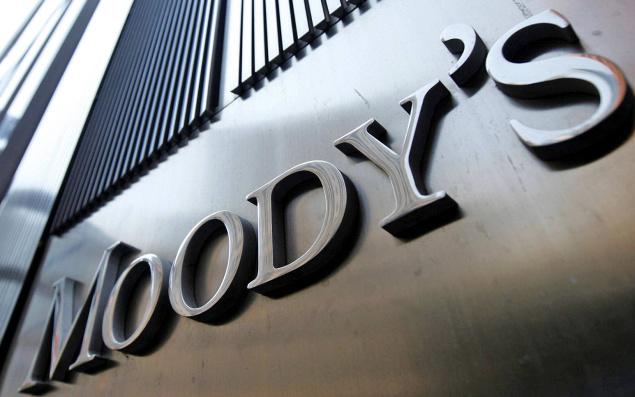
NEW DELHI: Describing muted private investment and NPAs as speed-breakers amid slow reforms, Moody’s today said it could upgrade India’s rating in 1-2 years if it is convinced that reforms are “tangible”.
Moody’s, which has a ‘Baa3’ rating with a positive outlook, said evidence of policymakers working towards a faster fiscal consolidation, reducing the debt-GDP ratio and addressing infrastructure and monsoon volatility challenges will determine an upgrade, going forward.
“We have a positive outlook on India. On balance, the risk is on the upside. We are continuously monitoring the rating. We see pressure building up in 1-2 years and any tangible change could bring about a change in rating,” Moody’s Sovereign Group Senior V-P Marie Diron told reporters.
Moody’s Investors Service had in April 2015 revised India’s outlook to ‘positive’ from ‘stable’ and said it could upgrade rating in 12-18 months.
Asked if policies are moving in the direction as envisaged by Moody’s for an upgrade, Diron said: “We have seen progress in implementation of reforms. What we did not anticipate is the weakness of private investment.”
Moody’s listed six agenda on the list of pending reforms — the land acquisition Bill, labour law reforms, significant infrastructure investment, tangible benefit from Make in India initiative, tax administration and PSU bank reforms.
Stressing that weak financial health of PSU banks continues to pose contingent liability risk and muted private sector investment constrains India’s ratings, Diron said external sector vulnerability and geo-political risks could pose additional pressure.
India’s step-wise reforms have been set in motion, but “weak investment and banking risk may act as speed-breakers”, Moody’s Investors Service said in a report.
Diron added: “Reforms have been slow and gradual and we are waiting for confidence that reforms will be tangible and able to change investor confidence, and corporates start seeing improvement in business environment.”
Passage of GST, bankruptcy law, the move towards the fiscal deficit range and inflation-targeting monetary policy are “credit positive”, Diron said, adding that increased policy transparency and credibility display institutional strength in the economy even as corruption still persists in some sectors.
Speaking at a joint Moody’s-Icra sovereign and macro- economy briefing here, Icra Senior Economist Aditi Nayar said economic growth will pick up in 2016-17 to 7.9 per cent, from 7.6 per cent last fiscal.
Nayar said retail inflation will be in the 4-5 per cent range till November as food prices decline and will continue to rise from December to touch 5.2 per cent in March-end.
“We expect 0.25 per cent cut in repo rate in the policy review in December. Once the monetary policy committee is set up, future rate cuts would depend up on the timeframe that they adopt to reach the median point of the 2-6 per cent inflation target,” she said.
Meanwhile, finance ministry officials would pitch for a rating upgrade with Moody’s at its meeting tomorrow.